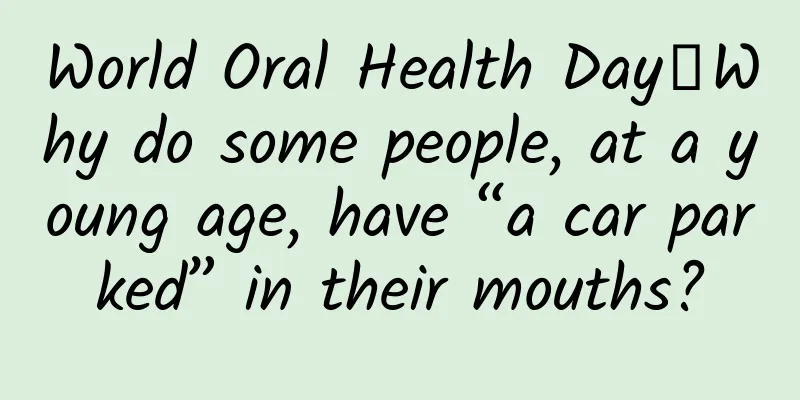What exactly happened when I blacked out after drinking?

|
© Getty Images Leviathan Press: Almost all of my friends who drink have experienced blackouts to some extent, losing their memory of what happened the night before. But there are a few friends who never black out, and can easily recall what they experienced or saw even if they are drunk and vomit. Unfortunately, I belong to the latter, so I have never known what blackouts feel like. Maybe it's because I can't drink enough, and I fell asleep before I blacked out. Sarah Hepola woke up with a familiar feeling of regret. Most of her memory of the previous night was gone, except for a brief chat at a party, and nothing else. How did she get there? Which venue is the admission stamp on her hand from? Who bought the pizza? Who is the guy next to her? "Although I felt a little strange at the time and didn't know what was going on...but I'll just laugh it off. This is not the first or second time," she thought. This has happened to Hepola all the time, ever since she was a kid. She often feels like "there's a trap door down there, and when I wake up the next day, I'm somewhere else." This is an alcohol-induced condition that can have serious consequences, commonly known as a blackout. As the word implies, in this state, the memory of the night's continuous experience suddenly breaks off after a certain point, and it disappears with a crisp snap. Some drinkers experience sporadic blackouts, a little here, a little there. At the time, Hepola thought it was a minor issue, but it was only later when she began to reflect on her past that she realized her relationship with alcohol was a mess, and she wrote about it in a book. I believe everyone is familiar with this type of amnesia after drinking, because blackouts are so common: one analysis showed that when asked about their drinking habits, more than half of college drinkers had experienced some degree of blackouts. And in a survey of more than 2,000 high school graduates, 20% of them had blackouts within six months. (linkinghub.elsevier.com/retrieve/pii/S030646031500057X) (onlinelibrary.wiley.com/doi/epdf/10.1111/acer.13010) There is evidence that blackouts are common among drinkers, especially among college students. © BroBible “Fifteen years ago, blackouts were not widely recognized as a phenomenon,” says Aaron White of the National Institute on Alcohol Abuse and Alcoholism, who has spent his career studying blackouts. “Now we know that [a lot of] people black out.” Now, scientists are uncovering the many causes of blackouts, and why they are so personal - affecting some people more than others. For a long time, people thought that only alcoholics would experience blackouts. But research shows that this is not the case - a series of strange experiments that would never be ethically approved today have revealed the surprising answer to the world. In the late 1960s, a researcher named Donald Goodwin recruited alcoholics from hospitals and job centers to see what would happen when they blacked out. He found that among 100 alcoholics, more than 60 had ordinary blackouts, some were completely blackouts, and some were scattered blackouts. Moreover, people who were blacking out could have very coherent behavioral pathways. When drunk, the subjects' immediate memory was "not damaged" and they could even perform simple calculations. But after 30 minutes, they had forgotten everything. (www.cambridge.org/core/journals/the-british-journal-of-psychiatry/article/abs/phenomenological-aspects-of-the-alcoholic-blackout/B37C34228D3706E753328327360F58DA) In a follow-up experiment, he had subjects drink either 18 ounces or half a liter of whiskey over a four-hour period and then presented them with scenarios designed to "provide memorable experiences that a sober person would remember with minimal effort." (nyaspubs.onlinelibrary.wiley.com/doi/pdf/10.1111/j.1749-6632.1973.tb28268.x) In one, he had subjects watch pornographic films and then asked them detailed questions about the content of the films. In another, he held a frying pan in his hand and asked people if they were hungry. When they answered, he told them there was a dead rat in the pan. The drunks forgot these memories after 30 minutes and could not remember them the next day. However, they could still remember them when asked no more than two minutes after the incident, which shows that short-term memory is at work. For decades, people thought only alcoholics experienced blackouts. Now we know this is not the case. © The Discovery Institute Although the subjects of these experiments were alcoholics, this laid the foundation for understanding blackout behavior in non-alcoholics. It is still influential today for obvious ethical reasons - modern scientists cannot use alcohol to induce memory loss in subjects. So we now basically rely on recall-based questionnaires to conduct research. Those chunks of memory that disappear during a blackout are, in part, a reflection of what's happening in the brain - the hippocampus is temporarily damaged because the brain weaves together incoming information to create our memories of everyday events, and people with severe damage to this area are unable to create new memories. (pubs.niaaa.nih.gov/publications/arh27-2/186-196.htm) White, who has studied this process at the cellular level in the rodent brain, believes that alcohol shuts down core brain circuits that make episodic memories—memories associated with a specific time and place. "We think that's largely because alcohol suppresses the hippocampus, so it can't create this record of sequential events, like a temporary gap in the tape," he said. White said that at certain doses of alcohol, the rats' brain cells "still worked," but at higher doses they shut down completely - explaining the memory fragmentation phenomenon. At the same time, when we drink, two other brain regions that provide the hippocampus with important real-time information about the outside world are also inhibited: the frontal lobe, the reasoning area of the brain responsible for attention, and the amygdala, an area that warns of danger. Risk factors We now know more about the risk factors that influence blackouts, such as drinking on an empty stomach and lack of sleep. Another major risk is the speed of drinking, because the faster we blow, the faster our blood alcohol level rises. A complete blackout occurs when the blood alcohol level rises to between 0.2% and 0.3%, at which point nothing can be remembered. Depending on gender and weight, drinking more than 15 British standard drinks - alcohol - in four hours can easily reach this level. (onlinelibrary.wiley.com/doi/epdf/10.1111/acer.13010) (www.jsad.com/doi/abs/10.15288/jsa.2003.64.547) But blood alcohol levels don’t explain why some people lose all memory of a blackout while others who drink similar amounts don’t. A 2016 study led by Ralph Hingson of the National Institute on Alcohol Abuse and Alcoholism provides some answers. (pubmed.ncbi.nlm.nih.gov/27012148/) Blackouts are more common among college students and women. © Love What Matters He said blackouts were related to whether one had been partying or drunk in the past month, or to whether one had smoked or taken one or more psychotropic drugs. Blackouts are more common among people who are lighter. Then there is the college population, which Singerson says is known for its "pre-drinking" culture, where people have a few drinks before drinking to get their brains buzzing before socializing, which raises blood alcohol levels more quickly. Overall, inherent brain vulnerabilities and inherited weaknesses make a person more likely to be at risk. Women black out more often than men. Because they are smaller and have a higher percentage of fat, they don't have enough water in their bodies to dilute the alcohol they consume, so their blood alcohol levels rise faster. In 2017, Amie Haas of Palo Alto University in California found that women usually pass out three drinks earlier than men. A 2015 study showed that women who drank one more drink than usual were 13% more likely to black out than men. (www.tandfonline.com/doi/abs/10.1080/00224499.2016.1228797) (pubmed.ncbi.nlm.nih.gov/26287954/) In addition to gender differences, there are also genetic factors. Studies have found that people whose mothers have a history of alcoholism are at greater risk. Another study of more than 1,000 pairs of twins found that most blackouts are affected by genetic genes. (www.sciencedirect.com/science/article/abs/pii/S030646031500057X) (pubmed.ncbi.nlm.nih.gov/14993113/) Genetic differences also appear to play a role in the brain. A longitudinal study of adolescents aged 12 to 21, led by Reagan Wetherill of the University of Pennsylvania, showed that those who later developed alcoholism and blackouts often had early lack of self-control, which could be detected in brain scans, even before they started drinking. (www.ncbi.nlm.nih.gov/pmc/articles/PMC3840110/) "Overall, there are inherent brain vulnerabilities and inherited weaknesses that make a person more at risk," she said. Alcohol can shut down brain circuits important for memories of specific times and places. © First Steps Recovery Worse, studies on mice have shown that heavy alcohol intake may cause changes in the brain. Equally worrying is that the groups most prone to blackouts - teenagers and college students - are at a more vulnerable stage of development. "There is growing evidence that alcohol is not safe for the developing brain, especially for young people," Haas said. Because compared with adults, teenagers are more sensitive to alcohol. One reason is that the frontal lobe of the brain last develops around the age of 25. (www.frontiersin.org/articles/10.3389/fpsyg.2018.00012/full) Loopholes in the consent rules As with risk factors, the consequences of blackouts aren’t just bad for teens; they’re even worse for girls. Haas and her colleagues believe that women with a history of blackouts are more likely to engage in risky sexual behavior during a blackout than men and non-constant drinkers, and are more likely to regret their blackouts the next day. (www.tandfonline.com/doi/ref/10.1080/00224499.2016.1228797?scroll=top) There is also evidence that women who have been sexually assaulted are more likely to be revictimized when they experience blackouts than when they experience binge drinking without blackouts, because alcohol impairs their decision-making systems, especially when assessing potential risks. Not only that, but post-event assessments are also risky because they cannot trust and rely on their own memories. (www.ncbi.nlm.nih.gov/pmc/articles/PMC4765805/) In blackout situations, female victims with a history of sexual assault are more likely to become victims again. © The Independent There's a catch-22 here: people who black out are more vulnerable to attack by would-be criminals, but if charges are brought later, they're more likely to be dismissed. Even where there are affirmative consent laws, "if 'she/he said', that means there has to be a lot of evidence afterwards to establish whether the participants consented," Weatherall said. The evidence is further complicated when only one party is blacked out. For example, in Canada, where active consent is required, a Globe & Mail investigation found that courts tend to favor situations where the complainant is at least partially blacked out and is not considered a reliable source because of the blackout. (www.theglobeandmail.com/news/investigations/unfounded-too-drunk-to-consent-how-alcohol-complicates-sex-assault-cases/article34338370/) This is tricky because people can appear lucid when they are blacking out. In the United States, the law varies from state to state. Most people believe that a person who is "mentally incapable" cannot give consent. But in New York State, for example, the law states that mental incapacity can only be caused by involuntary drinking or drugging, so it does not apply to people who choose to drink. (www.rainn.org/news/how-does-your-state-define-consent) Other states that do include voluntary drinking caution that the defendant must be "reasonably" aware that the person is incapacitated. But since black people can appear to be acting normally, defendants can argue that they were not aware. “It’s tricky because people can look lucid when they’re blacking out,” White said. “You don’t necessarily have to look stoned to be blacking out.” Sarah Hepola has had extensive experience with this sense of disconnection. She says that during blackouts, she can still function, participate in conversations or respond to jokes, just as Goodwin's subjects can perform calculations. Only those who know her well can recognize her "expressionless dead look" during blackouts. "It's like I'm out of my mind, I'm talking but no one is listening," she says. No matter how she looked to outsiders, she knew that was not who she was. "I was very sure that my decision-making system was impaired," Hepola said. "I was extremely impulsive, unguarded, and an exhibitionist. Sometimes, I even had aggressive behaviors that I didn't understand later... and this was what other people told me." Historically, scientists have given subjects alcohol in studies to induce memory loss. For obvious ethical reasons, this is not possible today. © Getty Images That’s why some colleges are being more explicit: “It is possible that during a blackout, an individual may appear to be giving consent but not be aware and capable of making decisions,” Amherst College warns in its sexual misconduct policy. Similarly, the University of Michigan states: “Intoxicated individuals are legally incapable of consenting to sexual activity, which means that having sex with a ‘mentally incapacitated’ person meets the legal definition of sexual assault.” Screening questionnaires about alcohol use often ask about past blackouts. Drinkers who black out frequently are more likely than the general population to experience a variety of negative consequences, from missed appointments and being late for work to injuries and drug overdoses, making blackouts a potent marker and predictor of other negative behaviors. Therefore, current screening questionnaires often use questions about blackouts to quickly understand whether the test subject is a casual drinker who drinks for pleasure or a heavy drinker who drinks excessively. Fragment screening Mary-Beth Miller, an addiction psychologist at the University of Missouri, found that alcoholics who frequently blacked out could reduce their drinking with a simple intervention that she tested first on military veterans and then on college drinkers. (www.ncbi.nlm.nih.gov/pubmed/29602274) The intervention, called “personalized normative feedback,” is an online questionnaire that asks about a person’s drinking habits and tells them how much alcohol people of similar age and background drink. Her team found that blackouts are “a moment of plasticity that facilitates an individual’s response to intervention.” (www.sciencedirect.com/science/article/abs/pii/S0005789418300480) An online questionnaire that provides feedback on a person's drinking habits and compares them with others could help reduce alcohol consumption. © Getty Images Simply asking a person how much they drink is rarely effective. Today, questionnaires about alcohol use ask about past blackouts, so they can be more targeted to people who need help. “It makes screening more specific, without having to do it to every person who walks into the clinic,” Miller said. The intervention is so inexpensive that Miller and her team hope to build on it to develop more effective interventions. She wants to encourage a drinking culture where people understand that “you don’t have to get high to have a good time.” Other researchers hope to reduce other types of high-risk behaviors by asking about past blackouts. “Blackouts are one of the most negative consequences of alcohol, and it could be the canary in the coal mine for more serious problems,” Haas said. It's easier said than done. For those who often drink until they black out, the first step to change is to consciously monitor their alcohol intake and ask friends who often drink to do the same. For Hepola, only when looking back can you find those red flags. Even if you "don't want to get too drunk" at the time, you can't stop at all. "We tend to laugh off these chaotic behaviors and ignore the mental and physical damage that alcohol causes," Hepola said. She has now been sober for eight years and no longer falls through black trap doors that cause her to lose her memory, which she says has made life much simpler. By Melissa Hogenboom Translation/Big Guy Proofreading/Sesame filling teeth gap Original article/www.bbc.com/future/article/20180613-why-do-only-some-people-get-blackout-drunk This article is based on the Creative Commons License (BY-NC) and is published by Da Guy on Leviathan The article only reflects the author's views and does not necessarily represent the position of Leviathan |
>>: 【Satellite-borne atomic clock】 Want accurate navigation? Calculate the time first
Recommend
Video Network Promotion Methodology
According to iResearch mUserTracker data, in 2016...
"TikTok Short Video Monetization Course" teaches you how to produce, sell goods and build IP
Course Contents: 1. Tik Tok money-making model.mp...
Android development, learning resources you should know
[[133537]] 1. Foreign tutorial websites Android D...
B station semi-private traffic pool marketing
In the eyes of the public, Bilibili is a video pl...
Why is spider silk so strong? It's all thanks to this little trick of the spider →
Stills from the movie Spider-Man 2 You may have m...
Introduction and tips for Baidu e-commerce promotion!
E-commerce store promotion is a marketing product...
From 0 to 1, how to plan your own promotion channels?
As a newbie in the operation circle, I still don’...
These scientists' magical experiments are dedicated to studying how to "rejuvenate"
Staying young is basically one of the common purs...
Tik Tok monetization, how to become a "profitable" vlog blogger?
Tik Tok has been around for four years now, and t...
Analysis of the underlying logic of the user incentive system!
Background of the User Incentive System The user ...
How does a sports watch know your altitude?
"How thick the earth is, how high the sky is...
APICloud has been working hard for six years to build a low-code development platform with persistence and innovation
[51CTO.com original article] The rapid developmen...
Breaking news: a 61-year-old mother suffering from hypertension died suddenly on the plane. These 4 types of people should be especially careful when flying!
Airplane travel has become a part of modern life....









